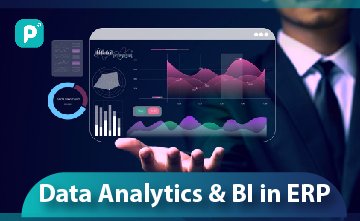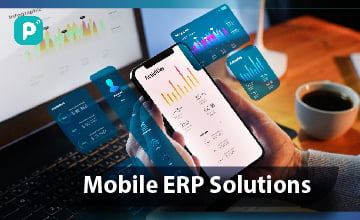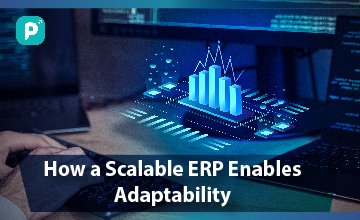In the current fiercely competitive business environment, companies wrestle with the challenges of handling extensive data. The integration of Data Analytics and Business Intelligence (BI) tools into Enterprise Resource Planning (ERP) systems has become a pivotal factor, providing actionable insights that propel strategic decision-making and foster enduring growth.
Today’s blog will focus on understanding more about the integration of data analytics & business intelligence in ERP!
Understanding Data Analytics & Business Intelligence
Data Analytics and Business Intelligence (BI) play crucial roles in modern business strategies, providing organizations with valuable insights for decision-making and strategic planning.
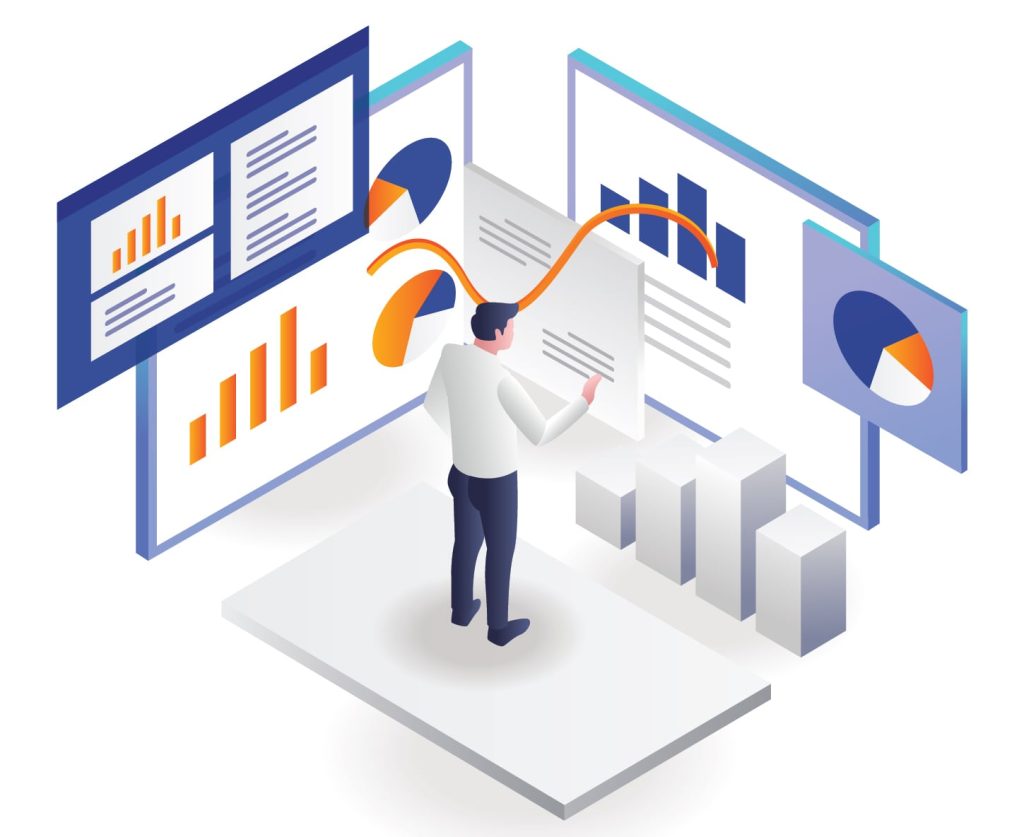
Data Analytics involves the interpretation of raw data to extract valuable insights, identify patterns, and make informed decisions. It encompasses various techniques such as statistical analysis, predictive modeling, and machine learning to draw meaningful conclusions from data.
BI focuses on the collection, analysis, and presentation of business information to support decision-making processes. It involves the use of reporting tools, dashboards, and data visualization to transform raw data into actionable intelligence for executives and stakeholders.
Role in Decision-making & Strategic Planning
Data Analytics empowers organizations to make data-driven decisions by providing a deep understanding of trends, customer behavior, and operational efficiency. It plays a vital role in optimizing processes, improving products or services, and identifying opportunities for innovation.

BI serves as a strategic enabler by consolidating data from various sources into coherent and accessible formats. It equips decision-makers with real-time insights, performance metrics, and historical data, facilitating informed strategic planning and execution.
Distinguishing Factor
Data Analytics is primarily focused on analyzing and interpreting data to discover trends and patterns. BI, on the other hand, is more concerned with presenting actionable insights to support decision-making. Data Analytics often involves real-time or near-real-time analysis to address immediate concerns. BI, meanwhile, may involve historical data analysis to provide a broader context for decision-makers.
While Data Analytics has a broader scope, encompassing statistical analysis, machine learning, and predictive modeling, BI concentrates on reporting, querying, and data visualization.
Integration of Data Analytics & BI in ERP
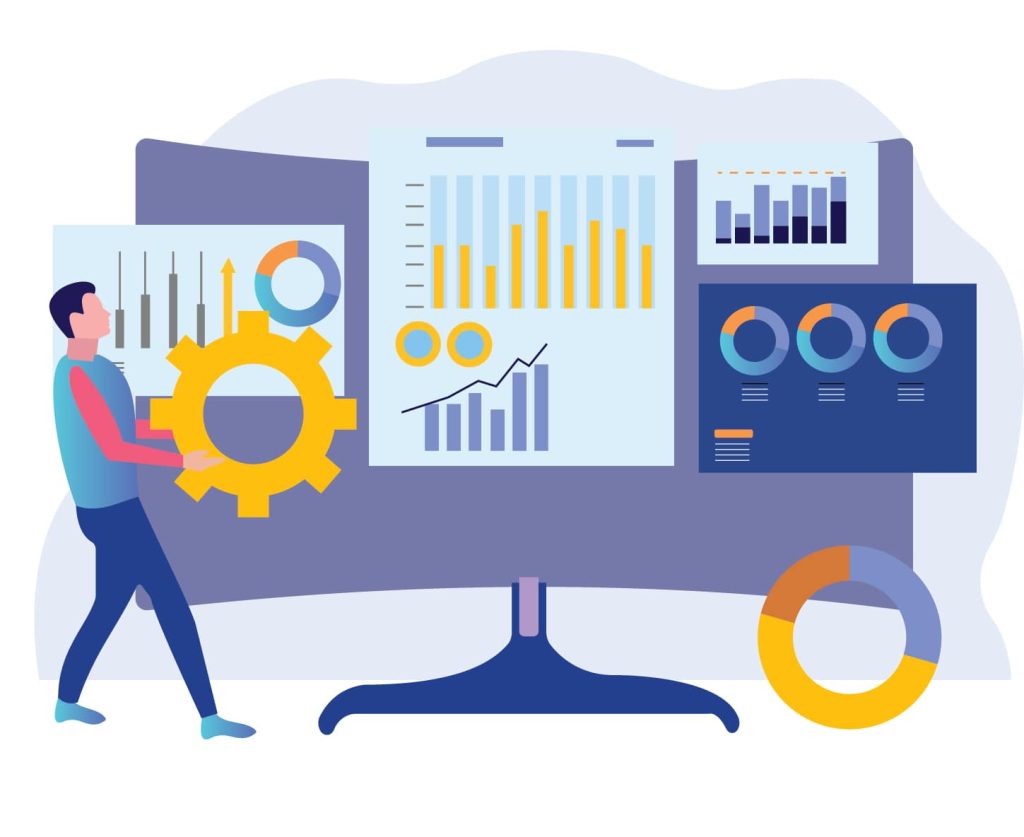
Enterprise Resource Planning (ERP) systems are comprehensive software solutions designed to streamline and integrate various business processes across an organization. ERP acts as a centralized hub, providing a unified platform for data management and facilitating efficient communication between different departments.
Importance of Integrating Analytics Tools with ERP
Integrating Data Analytics and Business Intelligence (BI) tools with ERP systems is a strategic move that enhances the capabilities of traditional ERP. This integration brings several advantages:
- Holistic View: By incorporating analytics tools, organizations gain a holistic view of their data, allowing them to extract valuable insights from various business processes.
- Real-time Analysis: Integration enables real-time or near-real-time analysis of data, providing timely and relevant information for decision-making.
- Improved Accuracy: Analytics tools enhance data accuracy and quality by leveraging advanced algorithms and validation processes, ensuring that decisions are based on reliable information.
- Predictive Capabilities: The combination of ERP and analytics facilitates predictive analytics, allowing organizations to forecast trends, identify potential issues, and make proactive decisions.
Enhancing Data-Driven Decision-Making in Organizations
The integration of Data Analytics and BI with ERP systems contributes significantly to fostering a culture of data-driven decision-making within organizations:

- Informed Decision-Making: Decision-makers have access to a comprehensive set of analytics and reports derived from ERP data, empowering them to make informed and strategic decisions.
- Performance Monitoring: Organizations can monitor key performance indicators (KPIs) in real-time, enabling quick responses to changing market conditions or internal challenges.
- Operational Efficiency: Integration enhances operational efficiency by identifying bottlenecks, optimizing processes, and improving overall performance across various business functions.
Benefits of Leveraging Data Analytics in ERP
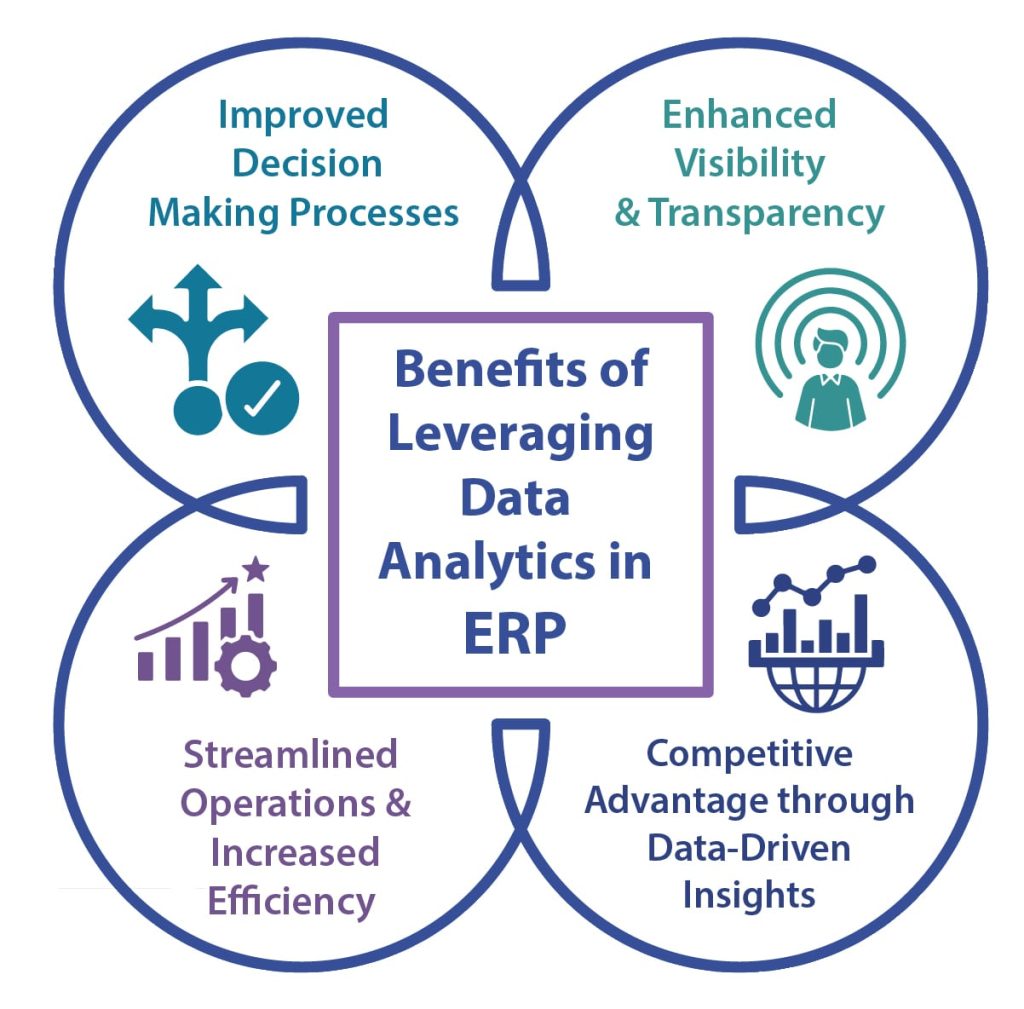
The integration of Data Analytics and BI in ERP systems yields multifaceted benefits. From improving decision-making and increasing visibility to streamlining operations and gaining a competitive edge, organizations that harness these tools unlock a pathway to sustained growth and success in today’s dynamic business environment.
Improved Decision-Making Processes
- Informed Choices: Data Analytics and BI empower decision-makers with accurate, real-time insights derived from ERP data. This ensures that decisions are well-informed, timely, and aligned with organizational goals.
- Predictive Analysis: Advanced analytics tools integrated with ERP allow organizations to move beyond reactive decision-making. Predictive analytics enables the anticipation of trends, risks, and opportunities, leading to more proactive strategies.
Enhanced Visibility and Transparency
- Comprehensive Data Views: Data Analytics and BI provide a 360-degree view of organizational data, breaking down silos and offering a holistic perspective across departments. This transparency fosters collaboration and ensures that decision-makers have a clear understanding of the entire business landscape.
- Traceability: With enhanced visibility, organizations can trace data back to its source, ensuring data integrity and accountability. This transparency is crucial for compliance, risk management, and building trust among stakeholders.
Streamlined Operations and Increased Efficiency
- Optimized Processes: The integration of analytics with ERP systems facilitates the identification of bottlenecks, inefficiencies, and areas for improvement. This insight enables organizations to optimize processes, reduce operational costs, and enhance overall efficiency.
- Real-time Monitoring: Monitoring key performance indicators in real-time allows for immediate corrective actions and adjustments, ensuring that operations are aligned with strategic objectives.
Competitive Advantage through Data-Driven Insights
- Market Responsiveness: Data-driven insights from ERP analytics empower organizations to respond quickly to market changes, customer preferences, and industry trends. This agility is a key factor in gaining a competitive edge.
- Innovation and Differentiation: Organizations leveraging data analytics and BI in ERP are better positioned to innovate and differentiate themselves. The ability to uncover hidden patterns and opportunities sets the stage for strategic initiatives that drive competitive advantage.
Challenges & Considerations
- Data Quality and Integrity: Ensuring the accuracy and reliability of data poses a challenge, requiring robust processes for data validation and cleansing.
- Integration Complexities: Integrating Data Analytics and BI into ERP systems may encounter challenges, such as interoperability issues and the need for seamless connectivity between diverse platforms.
- Security and Privacy Concerns: Safeguarding sensitive data is critical, demanding robust cybersecurity measures to protect against breaches and unauthorized access.
- Skillset Requirements and Workforce Readiness: Adapting to analytics tools requires a skilled workforce. Organizations must invest in training to ensure staff proficiency and maximize the benefits of integrated systems.
Conclusion
In conclusion, the integration of Data Analytics and Business Intelligence (BI) into Enterprise Resource Planning (ERP) systems emerges as a transformative strategy for businesses navigating the complexities of today’s data-centric landscape. While presenting numerous benefits such as improved decision-making, enhanced visibility, and streamlined operations, it also brings forth challenges like data quality concerns and the need for a skilled workforce. Despite these challenges, the adoption of integrated systems paves the way for organizations to leverage data-driven insights, fostering resilience, and sustained growth in the competitive business environment.
Seeking a savvy digital marketing strategy? We’ve got it covered! Explore our website for services to genuinely elevate your business. Visit us now!
All images belong to their respective owners. Please email [email protected] if removal is required.

